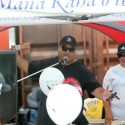About one hundred people who’ve been involved in some way with E Tū Whānau over the last decade, came together in Wellington in June 2018 to consider the movement’s achievements and help design its future.
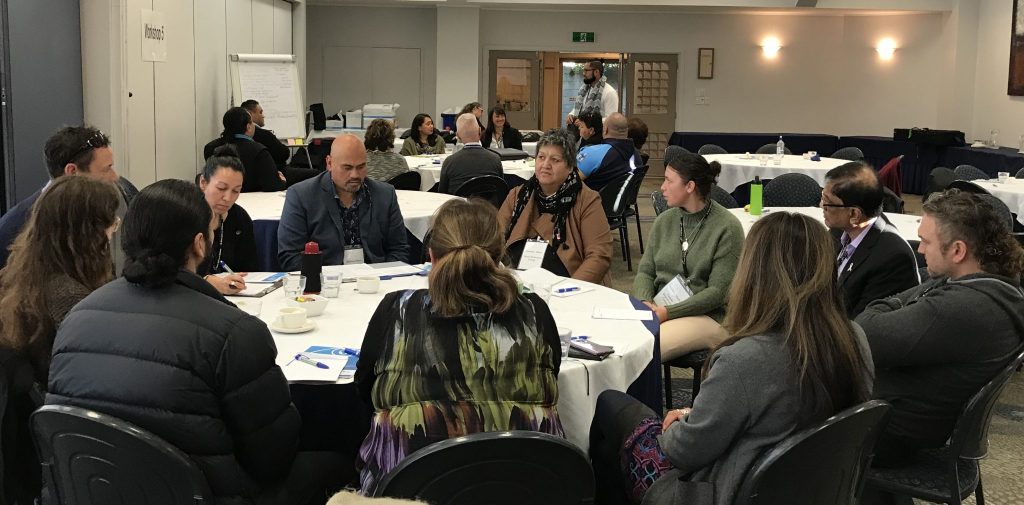 These were kahukura, Māori who are recognised as influencers and leaders in their own whānau, hapū, rohe or area of work. They came from all walks of life and from all over the motu. Grassroots community and social workers, gang whānau, rangatahi, sports administrators, social workers and rūnunga CEOs joined forces to share ideas and experiences with iwi leaders, academics and government officials.
These were kahukura, Māori who are recognised as influencers and leaders in their own whānau, hapū, rohe or area of work. They came from all walks of life and from all over the motu. Grassroots community and social workers, gang whānau, rangatahi, sports administrators, social workers and rūnunga CEOs joined forces to share ideas and experiences with iwi leaders, academics and government officials.
Authenticity and passion
E Tū Whānau Kaiwhakahaere, Ann Dysart, said that they all brought knowledge, expertise and an authenticity honed by their work with, and passion for, their people.
“They believe in this kaupapa and want real input into developing it so that it continues to be meaningful and useful to their people,” she said.
The manager of Waiwhetu Marae, Peggy Luke-Ngaheke, told the gathering that E Tū Whānau was part of her marae’s bloodline and likened it to the Kōhanga Reo movement she was part of establishing 37 years ago.
“I believe E Tū Whānau has fine-tuned the values that have pushed kōhanga reo and the initiatives that have come out of that because it’s about our mokopuna, all our mokopuna.”
The kahukura gathered to share current knowledge and thinking about the issues that affect whānau and to contribute to positive solutions by providing input into the E Tū Whānau Programme of Action (POA) for the next five years. The POA outlines the actions that Te Ao Māori have committed to undertake, those that government has responsibility for, and those that are shared.
Real people, real stories
The recently appointed Director for Māori and Pacific at the Ministry of Social Development, Charlie Howe, said he was stunned by the range of people at the workshop and their kōrero. He described his experience of the kahukura hui as “learning enriched with aroha”.
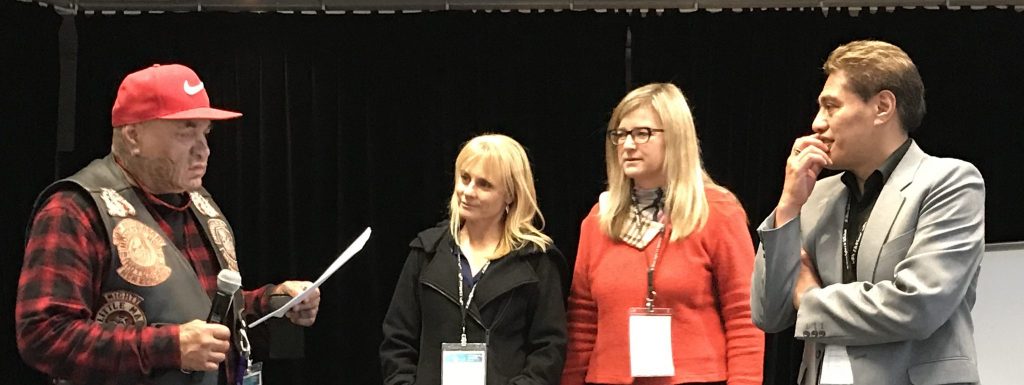
Edge and his group report back to the hui
“Real people telling real stories beats any paper you can read. What I heard worried me because I heard first-hand the pressure many of these people were under.”
“Some were talking about the pain they felt when they had to turn families in distress away because they don’t have the capacity to help everyone who needs it. It made me determined to work harder to get them better assistance.”
Doing things differently
Group General Manager of Community Partnerships and Programmes at MSD, Marama Edwards, was also blown away at how willing people were to share their stories and experiences with government officials in the hope that they would be heard.
“I came away thinking hard about how we, as a crown agency, could take notice, how we can be bold about doing things differently, trying something new and how this can be implemented across the board.
“We know that whānau can come up with their own solutions. It’s not for us to dictate. It’s up to us to find the best way to support them.”
During the jam-packed day, the kahukura broke into groups to consider what aspects of the E Tū Whānau kaupapa have worked over the last decade and the direction they felt it should take in the future.
What people said
Here is a taste of the rich kōrero.
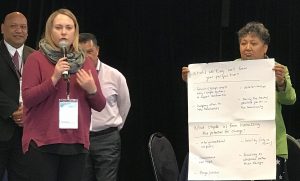 “A lot of whānau are saying that non-waged forms of labour must be recognised. The care they have for their tamariki and one another, as caregivers, the learning they do – not learning targeted toward careers but education for education’s sake, is also important and raising babies. These things must have value.”
“A lot of whānau are saying that non-waged forms of labour must be recognised. The care they have for their tamariki and one another, as caregivers, the learning they do – not learning targeted toward careers but education for education’s sake, is also important and raising babies. These things must have value.”
CEO Te Rununga o Whaingaroa, Toa Fanevea
“A lot of the government departments want to measure success. E Tū Whānau, as far as I’m concerned, is the only one [where] you tell them what’s happening, they give you support, you give them the outcomes. That’s it. And always, the team will say, ‘what else can we do?’. Now to me, that’s a partnership.”
Waiwhetu Marae manager, Peggy Luke-Ngaheke
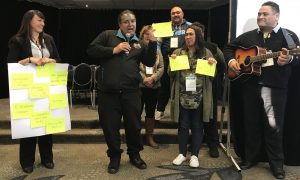 “We hear this kōrero about rangatira being the leaders of tomorrow. Well, our young people are going to be the prisoners of tomorrow. They’re building prisons for our kids and that’s one of our realities unless we change. The change that we expect of others, we need to model that.”
“We hear this kōrero about rangatira being the leaders of tomorrow. Well, our young people are going to be the prisoners of tomorrow. They’re building prisons for our kids and that’s one of our realities unless we change. The change that we expect of others, we need to model that.”
Black Power member, Eugene Ryder



